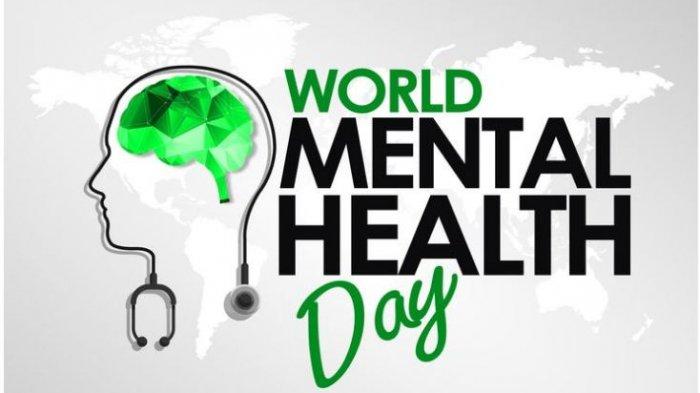Mental Health and affects of Covid-19
by Dr. Johnsey Thomas, Lifestyle Psychologist and Strategist Health-Wellness & EAP Consultant Certified Cognitive Behavioral Therapist, Aster Prime Hospital, Ameerpet, Hyderabad
Mental health is one of the most neglected areas of public health. Close to 1 billion people are living with a mental disorder, 3 million people die every year from the harmful use of alcohol and one person dies every 40 seconds by suicide. And now, billions of people around the world have been affected by the COVID-19 pandemic, which is having a further impact on people’s mental health.
Mental disorders comprise a broad range of problems, with different symptoms. However, they are generally characterized by some combination of abnormal thoughts, emotions, behaviour and relationships with others. Examples are schizophrenia, depression, intellectual disabilities and disorders due to drug abuse. Most of these disorders can be successfully treated.
Yet, relatively few people around the world have access to quality mental health services. In low- and middle-income countries, more than 75% of people with mental, neurological and substance use disorders receive no treatment for their condition at all. Furthermore, stigma, discrimination, punitive legislation and human rights abuses are still widespread.
COVID – 19 & Hampered Response
The limited access to quality, affordable mental health care in the world before the pandemic, and particularly in humanitarian emergencies and conflict settings, has been further diminished due to COVID-19 as the pandemic has disrupted health services around the world. Primary causes have been infection and the risk of infection in long-stay facilities such as care homes and psychiatric institutions; barriers to meeting people face-to-face; mental health staff being infected with the virus; and the closing of mental health facilities to convert them into care facilities for people with COVID-19.
With the disruption in health services, countries are finding innovative ways to provide mental health care, and initiatives to strengthen psychosocial support have sprung up. Yet, because of the scale of the problem, the vast majority of mental health needs remain unaddressed. The response is hampered by chronic under-investment in mental health promotion, prevention and care for many years before the pandemic.
Mental Health Infrastructure and Challenges Ahead in India
In India, 10 per cent of the population has common mental disorders and 1.9 per cent of the population suffers from severe mental disorders. Schizophrenia, bipolar affective disorder (BPAD), depression, anxiety disorders, psychoses, phobia, suicide, mood disorders, neurotic or stress related disorders, post-traumatic stress disorder, marital disharmony, sleep disorders, alcohol dependence and substance misuse and dementia are becoming common problems in the general population.
Mental illnesses are not only underreported in India but are not reported at all. Still whatever data is available; it clearly depicts the dreadful stage that we have reached in terms of our mental health. A total of 197.3 million people in India are estimated to be suffering from any mental disorder. In our case maximum load of mental illness is coming from Depression and Anxiety disorder with a striking 45.7 million and 44.9 million being prey to it respectively, whereas 7.5 million are suffering from Bipolar and 3.5 million from Schizophrenia. And we also need to understand that people having mild depression may report and seek help more easily than someone having Severe Mental illness.
In context of the present COVID-19 situation where there is likelihood of grave mental health problems in communities, with the given challenges it is going to be an uphill task for the nation. It is estimated that 10 to 20 persons out of 1000 population suffer from severe mental illness and 3 to 5 times more have emotional disorder.
With such a horrific state of mental health, our counter mechanism to deal with it lacks significantly. Although the Government of India has taken a number of commendable measures, but unfortunately having Law codes and Policies on paper doesn’t really help much if the implementation at ground-level is not ensured by all the concerned actors, especially State level Government and Civil society need to work together with uniformity.
The major challenges faced by Indian mental health system are lack of knowledge about the mental illnesses as well as lack of adequate mental health services. The inadequacy exists in both areas, for example, infrastructure and human resources. India spends < 2 per cent of its annual health budget on mental health which is far less than many countries of the world.
We have a dismal status in mental health care resources. With a population of more than 1.3 billion only around 10000 psychiatrists exist. A mere 0.75 Psychiatrists cater to about one lakh population in India whereas the desired number is above 3, in US and Europe there are 16 and 10 Psychiatrists to serve 100000 population respectively. US have almost 30 percent of World’s total Psychiatrists. At State level only Kerala has 1 psychiatrist per 1 lakh population.
World Mental Health Day: an opportunity to commit
The World Mental Health Day campaign will offer opportunities, primarily online given the continuing pandemic, for all of us to do something life-affirming: as individuals, to take concrete actions in support of our own mental health, and to support friends and family who are struggling; as employers, to take steps towards putting in place employee wellness programmes; as governments, to commit to establishing or scaling-up mental health services; and as journalists, to explain what more can and must be done to make mental health care a reality for everyone.
It is nearly 30 years since the first World Mental Health Day was launched by the World Federation for Mental Health. Since then it is observed that an increasing openness to talk about mental health in many countries of the world. But now turn these words into actions. We need to see concerted efforts being made to build mental health systems that are appropriate and relevant for today’s – and tomorrow’s – world. With so many people lacking access to good quality, appropriate mental health services, investment is needed now more than ever.
Countries spend on average only 2% of their health budgets on mental health. Despite some increases in recent years, international development assistance for mental health has never exceeded 1% of all development assistance for health. This is despite the fact that for every US$ 1 invested in scaled-up treatment for common mental disorders such as depression and anxiety, there is a return of US$ 5 in improved health and productivity.
Move for Mental Health: Let’s Invest
The world is already seeing the consequences of the COVID-19 pandemic on people’s mental well-being, and this is just the beginning. Unless we make serious commitments to scale up investment in mental health right now, the health, social and economic consequences will be far-reaching. During the past few months, the World Health Organization has issued, in collaboration with partners, guidance and advice on mental health for health workers and other frontline workers, managers of health facilities, and people of all ages whose lives have changed considerably as a result of the pandemic.
That’s why, for this year’s World Mental Health Day, WHO, together with partner organizations, United for Global Mental Health and the World Federation for Mental Health, is calling for a massive scale-up in investment in mental health. To encourage public action around the world, a World Mental Health Day campaign, Move for mental health: let’s invest has been kicked off.




